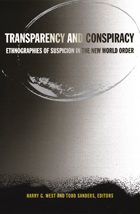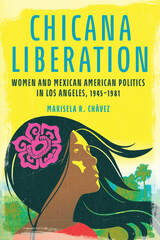
This volume addresses two facets common to our human experience. We are all descendants; we all have ancestors who make powerful claims on our lives. And we live in the aftermath of contact between European-based cultures and other civilizations. It is now clear that native religions are alive and adapting in the contemporary world, just as all religions have done in all eras.
The phenomenon of ancestors is common to all humans, but while prominent in most indigenous traditions, it has been suppressed in western cultures. This volume articulates crucial issues in the study of post-contact religion through the themes of the ancestral ordering of the world, intense personal attachments to forebears, and the catastrophes of colonization.

In this collection leading anthropologists reveal the variations and commonalities in conspiratorial thinking or occult cosmologies around the globe—in Korea, Tanzania, Mozambique, New York City, Indonesia, Mongolia, Nigeria, and Orange County, California. The contributors chronicle how people express profound suspicions of the United Nations, the state, political parties, police, courts, international financial institutions, banks, traders and shopkeepers, media, churches, intellectuals, and the wealthy. Rather than focusing on the veracity of these convictions, Transparency and Conspiracy investigates who believes what and why. It makes a compelling argument against the dismissal of conspiracy theories and occult cosmologies as antimodern, irrational oversimplifications, showing how these beliefs render the world more complex by calling attention to its contradictions and proposing alternative ways of understanding it.
Contributors. Misty Bastian, Karen McCarthy Brown, Jean Comaroff, John Comaroff, Susan Harding, Daniel Hellinger, Caroline Humphrey, Laurel Kendall, Todd Sanders, Albert Schrauwers, Kathleen Stewart, Harry G. West
READERS
Browse our collection.
PUBLISHERS
See BiblioVault's publisher services.
STUDENT SERVICES
Files for college accessibility offices.
UChicago Accessibility Resources
home | accessibility | search | about | contact us
BiblioVault ® 2001 - 2024
The University of Chicago Press









